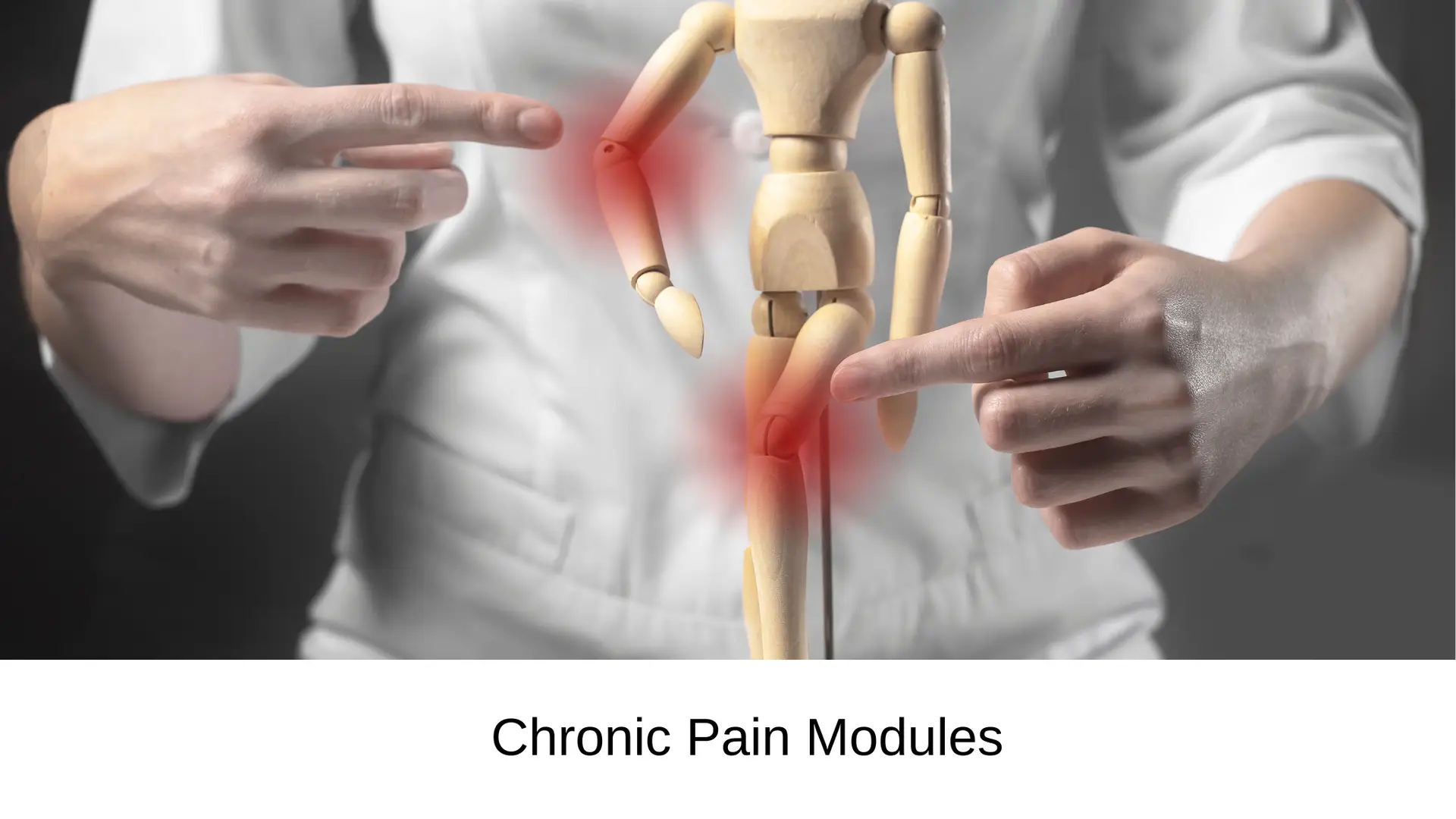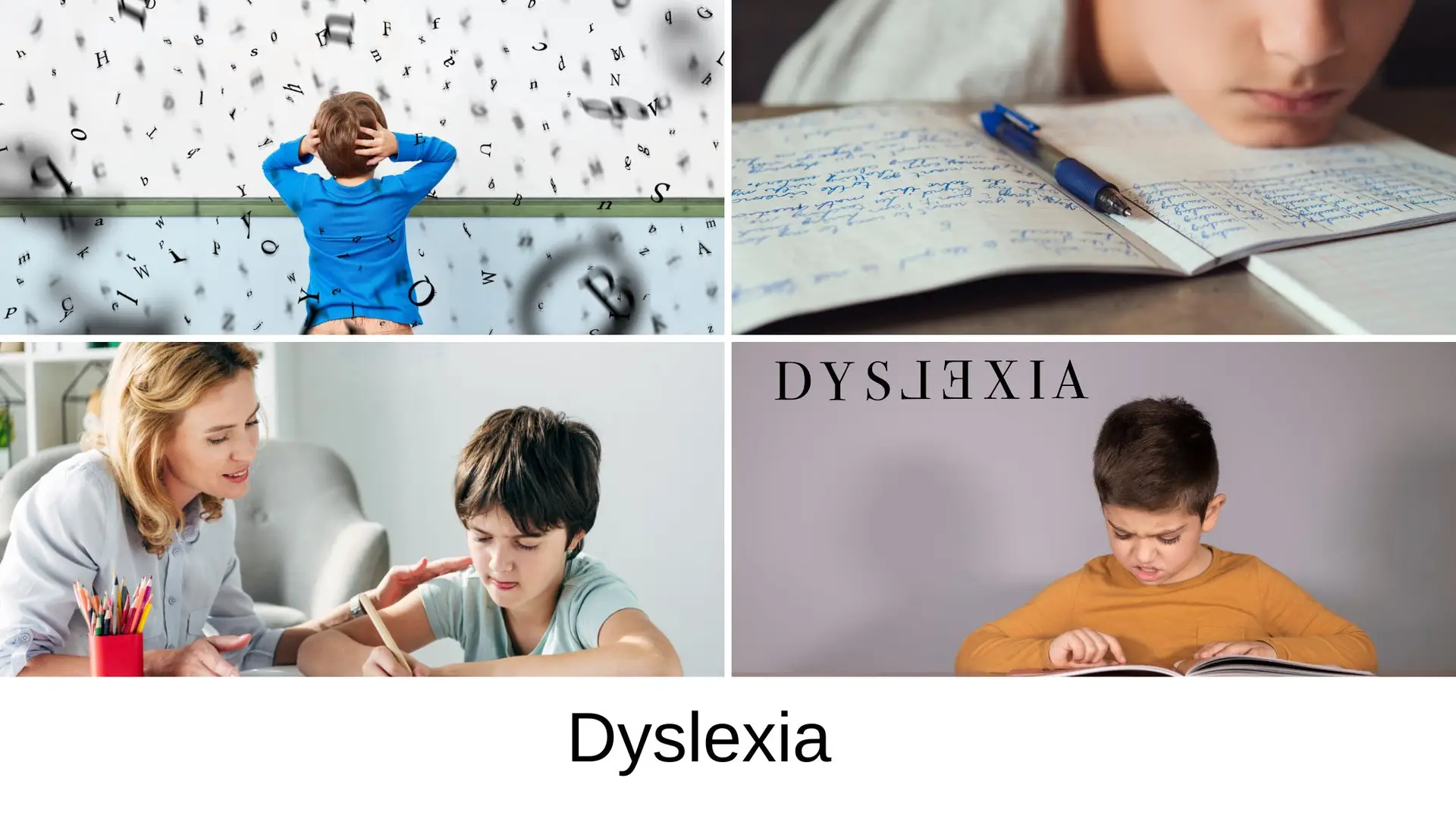
Expert Advice and Tips To Manage Your Pain
Welcome to our Chronic Pain modules! Our modules cover a range of conditions, treatments, advice and tips for all sufferers of chronic pain, no matter their age or circumstances. We understand the toll that chronic pain can take on someone’s life, and we want to help you manage it in a way that works best for you.
With our modules, you can gain access to information and resources so that you can create a personalized plan that allows you to manage your chronic pain with confidence.
Acceptance and Commitment Therapy (ACT) is a form of psychotherapy that aims to help individuals accept the difficulties they face in life while committing to actions that align with their values. It involves mindfulness techniques, acceptance strategies, and commitment to behaviour change.
Cognitive Behavioural Therapy (CBT) is a psychotherapeutic approach that focuses on how thoughts, feelings, and behaviours are interconnected. It’s commonly used to address a wide range of mental health issues, but it has also been found effective in managing chronic pain.
In the context of chronic pain, CBT doesn’t aim to eliminate the physical sensation but instead helps individuals manage their perception and response to pain. It involves several components:
Dialectical Behaviour Therapy (DBT) is a type of psychotherapy initially developed to treat borderline personality disorder (BPD)
When it comes to chronic pain, DBT can be beneficial in managing the emotional distress and mental health challenges that often accompany long-term pain.
Hydrotherapy, the therapeutic use of water, has emerged as a highly effective and natural treatment for chronic pain. It harnesses the healing properties of water to alleviate pain, reduce inflammation, improve circulation, and promote relaxation. Hydrotherapy offers a gentle yet powerful approach to pain management that can complement traditional medical treatments.
Managing chronic pain is a complex journey that often involves medications as part of a comprehensive treatment plan. While medications can effectively provide relief from pain, they can also have side effects and potential risks. It’s important to know what those side effects might be, so you can make an informed decision about the types of treatments you pursue.
Mindfulness can be a helpful tool for those dealing with chronic pain. Essentially, it involves focusing your attention on the present moment without judgment. It helps individuals become more aware of their thoughts, feelings, and bodily sensations, allowing them to manage pain more effective.
Occupational therapy (OT) is like a gentle sunrise in the life of those grappling with chronic pain. It’s not a sudden flare of healing, but a gradual light seeping into their world, illuminating new paths towards better health and independence. OT practitioners are like compassionate guides, walking alongside individuals on these paths, empowering them to venture beyond the limitations imposed by persistent pain.
Physiotherapy can be incredibly beneficial in managing chronic pain. Chronic pain, lasting for weeks, months, or even longer, often stems from various conditions like arthritis, fibromyalgia, injuries, or nerve damage.
Psychological therapy plays a crucial role in managing chronic pain. Chronic pain isn’t just a physical sensation; it involves emotional, cognitive, and behavioural aspects as well. Here’s how psychological therapy can help
Surgery can be an option for chronic pain when other treatments haven’t provided relief. However, it’s crucial to thoroughly explore non-surgical options before considering surgical interventions.
Systematic desensitization is a therapeutic technique often used in the treatment of anxiety disorders, phobias, and certain forms of chronic pain. It involves gradually exposing an individual to the source of their fear or discomfort while teaching them relaxation techniques to manage their anxiety response.
The connection between trauma and chronic pain is a complex and multifaceted one. Trauma, whether physical or emotional, can have a significant impact on both mental and physical health. Chronic pain, which persists for an extended period, can often be linked to past traumatic experiences.
Yoga therapy can be immensely beneficial for managing chronic pain. Its combination of physical postures, breathing exercises, meditation, and relaxation techniques can help alleviate pain and improve overall well-being. Here’s how yoga therapy can help with chronic pain:

Chronic pain can significantly impact various aspects of life, including fertility. The relationship between chronic pain and fertility can be complex and multifaceted.
Pregnancy itself brings about significant physical and hormonal changes, which can exacerbate or even trigger chronic pain conditions. Conditions such as fibromyalgia, pelvic girdle pain, and lower back pain are common ailments experienced during pregnancy. The fluctuating hormones, weight gain, and postural changes contribute to the intensity and frequency of pain episodes.
Children with chronic pain face numerous hurdles in their everyday lives. Pain can interfere with their ability to participate in school, socialize with friends, and engage in physical activities. This can lead to feelings of isolation, frustration, and anxiety. It is crucial for parents, caregivers, and healthcare professionals to recognize these challenges and provide the necessary support.
Entering adulthood is a whirlwind of new experiences and responsibilities, a time filled with hope, dreams, and uncertainty. But for some of us, it also comes with an uninvited guest Chronic Pain
As we age, our bodies undergo numerous changes, and unfortunately, one of the most common challenges faced by elderly individuals is chronic pain. The aging process brings about physiological changes that can exacerbate the experience of chronic pain. Conditions such as arthritis, osteoporosis, and degenerative disc disease become more prevalent in older adults, leading to joint pain, backache, and musculoskeletal discomfort.
Chronic pain can significantly impact a person’s quality of life, especially towards the end of life. Managing pain effectively is crucial in end-of-life care to ensure comfort and dignity for the individual. There are various approaches to addressing chronic pain in this context.
Experiencing loss or bereavement while managing chronic pain can create a deeply challenging situation. The intertwining of grief and enduring physical discomfort can amplify each other’s impact, making coping more intricate.

There are various adaptations that can help individuals dealing with chronic pain to manage their condition more effectively by easing daily tasks or reducing strain on the body.
In the UK, there are several financial and supportive benefits available for chronic pain sufferers from both the government and charities:
Navigating a career while dealing with chronic pain can present challenges, but it’s entirely possible to find a fulfilling path.
Managing exercise with chronic pain can be a delicate balance. It’s essential to consult with a healthcare professional or a physical therapist who understands your condition before starting any exercise regimen.
Traveling with chronic pain can be challenging, but with some planning and strategies, it’s possible to make the experience more manageable and enjoyable. Here are some expert tips:
Nutrition plays a significant role in managing chronic pain. A well-balanced diet can positively impact pain levels by reducing inflammation, providing necessary nutrients for tissue repair, and supporting overall health. Here are several ways nutrition can help with chronic pain:
Balancing work and life when dealing with chronic pain can be challenging, but it’s definitely possible. Here are some tips and examples to help create a better work-life balance:

Anxiety and chronic pain often have a complex relationship. They can feed into each other, creating a cycle that’s challenging to break. Chronic pain can cause or exacerbate anxiety due to the constant discomfort, limitations on daily activities, and uncertainty about the future. In turn, anxiety can heighten the perception of pain, making it feel more intense or overwhelming.
Dealing with both bipolar disorder and chronic pain can be incredibly challenging. The combination can significantly impact your mental and physical well-being. It’s crucial to address both conditions effectively to manage symptoms and improve your quality of life.
The relationship between bipolar disorder and chronic pain isn’t entirely understood, but there are several ways in which they might be connected:
Depression and chronic pain often go hand in hand, forming a challenging cycle that affects both physical and mental well-being. The relationship between them can be complex. Chronic pain can lead to feelings of frustration, hopelessness, and isolation, contributing to depression. Similarly, depression can amplify the perception of pain and make it harder to cope with or manage.
Living with chronic pain can be incredibly challenging, and when coupled with loneliness, it can feel overwhelming. Loneliness often exacerbates the emotional and psychological toll of chronic pain. It’s important to address both aspects for holistic well-being.
Self-harm and chronic pain can be incredibly challenging to cope with. It’s important to seek support and help in managing these issues. Have you spoken to a healthcare professional or therapist about what you’re going through? There are many ways they can assist, from therapy and pain management techniques to finding healthy coping strategies. You’re not alone, and there are people who genuinely want to help you through this.
Sleep and chronic pain often have a complex relationship. Chronic pain can significantly impact sleep quality, making it harder to fall asleep or stay asleep throughout the night. Conversely, poor sleep can also worsen the perception of pain, creating a cycle where one exacerbates the other.
Chronic pain can take a significant toll on mental health, and it’s not uncommon for people experiencing it to feel hopeless or consider suicide. It’s crucial to seek help and support from professionals who specialize in both pain management and mental health.

Living with both a personality disorder and chronic pain can be incredibly challenging. The experience varies widely based on the specific personality disorder and the nature of the chronic pain.

Certain forms of contraception can potentially affect chronic pain in individuals. For instance, some people with chronic pain conditions might experience changes in their symptoms when using hormonal birth control methods like oral contraceptives, patches, or hormonal intrauterine devices (IUDs). These methods can impact pain levels, either alleviating or exacerbating them, depending on the person and their specific condition.
Intimacy can be affected by chronic pain, as it often influences both physical and emotional aspects of a person’s life. Chronic pain might impact someone’s desire for intimacy due to physical discomfort, decreased libido, or emotional distress caused by the pain itself.
Chronic pain can significantly impact relationships, as it affects various aspects of life. Here are some ways it can influence relationships and some tips on managing these challenges:
Sexual activity can be influenced by chronic pain in various ways. Chronic pain, which persists for an extended period can significantly impact an individual’s sexual life. The experience of pain itself can affect one’s desire, arousal, and ability to engage in sexual activities.
Sexual orientation doesn’t directly cause chronic pain, but there might be connections between the two. Chronic pain can impact various aspects of life, including relationships and intimacy.
Chronic pain is a complex issue that can affect anyone regardless of their gender identity. However, research suggests that transgender individuals may experience higher rates of chronic pain compared to the general population.

Both autism and chronic pain are complex conditions that can have significant impacts on an individual’s life. While they are distinct conditions, they can sometimes coexist, leading to unique challenges.
Both ADHD and chronic pain can significantly impact someone’s life, and dealing with both conditions can pose unique challenges.

Both dyslexia and chronic pain can significantly impact a person’s life, albeit in different ways. Dyslexia is a learning disorder that affects reading, writing, and spelling abilities. It doesn’t necessarily cause physical pain, but it can lead to frustration, stress, and emotional challenges due to difficulties in processing language.

Caring for someone with chronic pain can be emotionally and physically demanding. Loneliness can exacerbate the challenges of caregiving by intensifying feelings of isolation, as the caregiver may feel emotionally disconnected from others due to the demands of their role.
Isolation can significantly impact a carer looking after someone with chronic pain. It’s a demanding role that often requires constant attention and care, which can lead to the carer feeling isolated from their own social circles and support networks.

There can be connections between chronic pain and delinquency in childhood, although it’s important to note that individual experiences vary greatly. Chronic pain can significantly impact a child’s life, affecting their physical, emotional, and social well-being.
Growing up in a low-income household can profoundly impact how chronic pain is managed and perceived. Financial constraints often restrict access to specialised healthcare, medications, or therapies essential for addressing and alleviating chronic pain.
The relationship between poor education in childhood and chronic pain can be complex. Limited access to education or inadequate educational experiences during childhood may affect various aspects of life, potentially impacting socioeconomic status, access to healthcare, and opportunities for understanding and managing chronic pain.
Click here for more info
Experiencing chronic pain during childhood can significantly impact various aspects of a person’s life, especially when compounded by poverty. Children facing chronic pain may struggle with daily activities, miss school frequently, and often require medical care, which can be financially burdensome for families living in poverty.
Childhood trauma and chronic pain can often be interconnected, influencing one another in various ways. Trauma experienced during childhood, such as abuse, neglect, accidents, or other adverse events, can have a profound impact on a child’s physical and emotional well-being. This can manifest in different forms, including chronic pain.